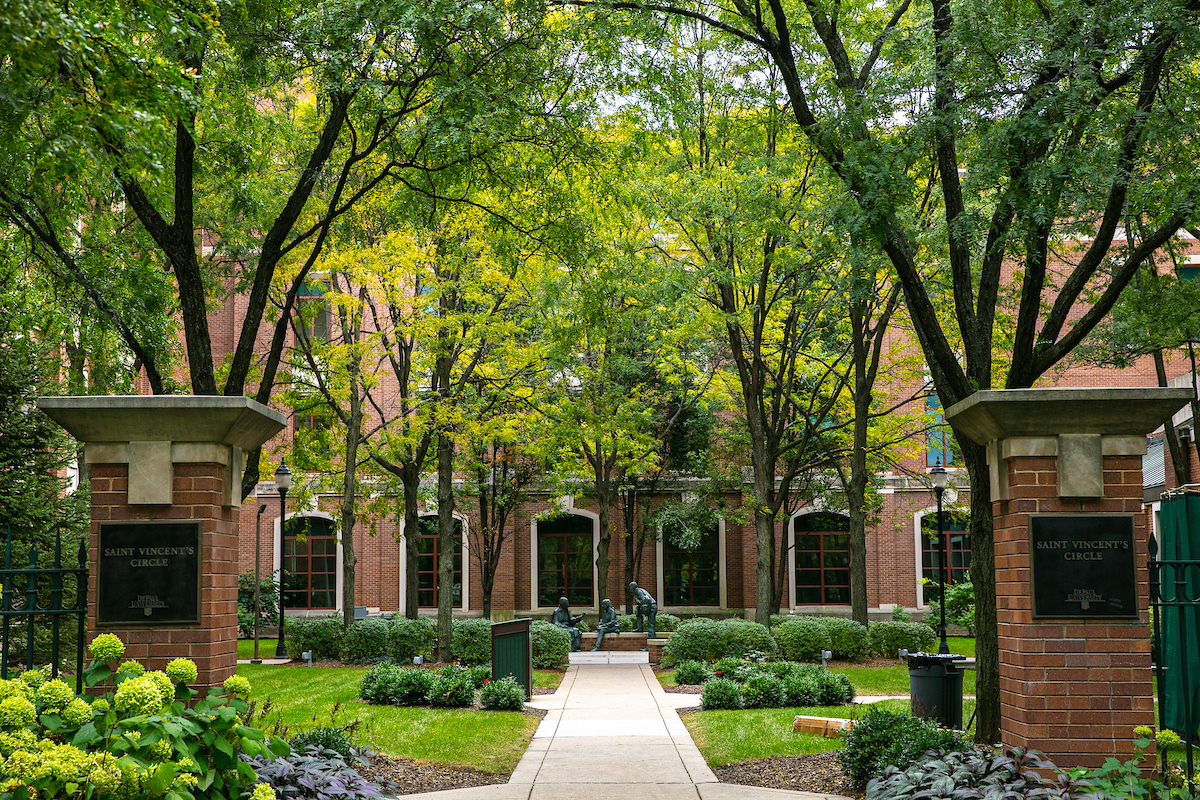 (DePaul University/Randall Spriggs)
(DePaul University/Randall Spriggs)
The DePaul community has shown incredible resolve and commitment to the university's mission in the face of enrollment declines over the last decade and other financial challenges. Not one area of this university has been untouched by DePaul's struggles, especially in recent months. Thank you for your hard work to continue supporting our students and DePaul's operations.Enrollment expectations for fall 2021 and fall 2022 are slightly less than the fall 2020 enrollment of 22,041. The enrollment projections are influenced by increased competition and declining numbers of college-going students. Record-breaking new first-year student enrollment has been offset by declines in continuing undergraduate and transfer enrollments. Challenging days remain ahead.
Last week, DePaul's Board of Trustees approved budgets for the next two fiscal years that address challenges associated with declines in enrollment and revenue lost due to disruptions in business associated with the pandemic. The budgets for fiscal years 2021-22 and 2022-23 contain investments in new programs and initiatives, as well as expense reductions.
Notable budget measures for fiscal year 2022 include:
- Full- and part-time faculty and staff may receive a one-time payment in spring 2022. This is contingent on DePaul's net tuition revenue exceeding the budgeted target of $444 million by more than $3 million.
- The 403(b) match will be restored partially to 7.5 percent. Last year, DePaul reduced its 403(b) match from 10 percent to 5 percent to address financial pressures tied to the pandemic.
- Areas across the university will be asked to cut $13 million in expenses, in the aggregate, $3 million of which will come from filled and unfilled positions. Workforce reductions will occur only as a last resort.
For fiscal year 2023:
- A 2 percent compensation pool for full- and part-time faculty and staff base increases will be contingent on net tuition revenue meeting the $457 million budgeted target.
For each fiscal year:
- Tuition rates will increase 2 percent for most students.
- Institutional financial aid will increase 4 percent in 2022 and an additional 3 percent in 2023.
The Strategic Resource Allocation Committee, known as SRAC, proposed the budget after a series of productive and candid discussions earlier this spring. President Esteban and the board's finance committee made some revisions to the original proposal approved by SRAC and referred this amended proposal to the Board of Trustees. We are grateful to the SRAC members for their care for DePaul, their colleagues and our students.
SRAC considered budgets for the next two fiscal years to create a medium-term financial strategy that will provide a framework for current financial decisions. Any significant changes in financial circumstances during the two-year period would be addressed as necessary by budget amendments approved by the university's Board of Trustees, consistent with past practice.
Universities across the country are grappling with the same challenges DePaul is facing. That fact does not make this news any easier to share. However, we know our community is creative and motivated to continue the university's important work. Developing the programs and initiatives that will propel DePaul into the future will require collective community work. We are counting on you to help us meet this pivotal moment for our university and our students.
Thank you for being a part of our community and for everything you do for DePaul.